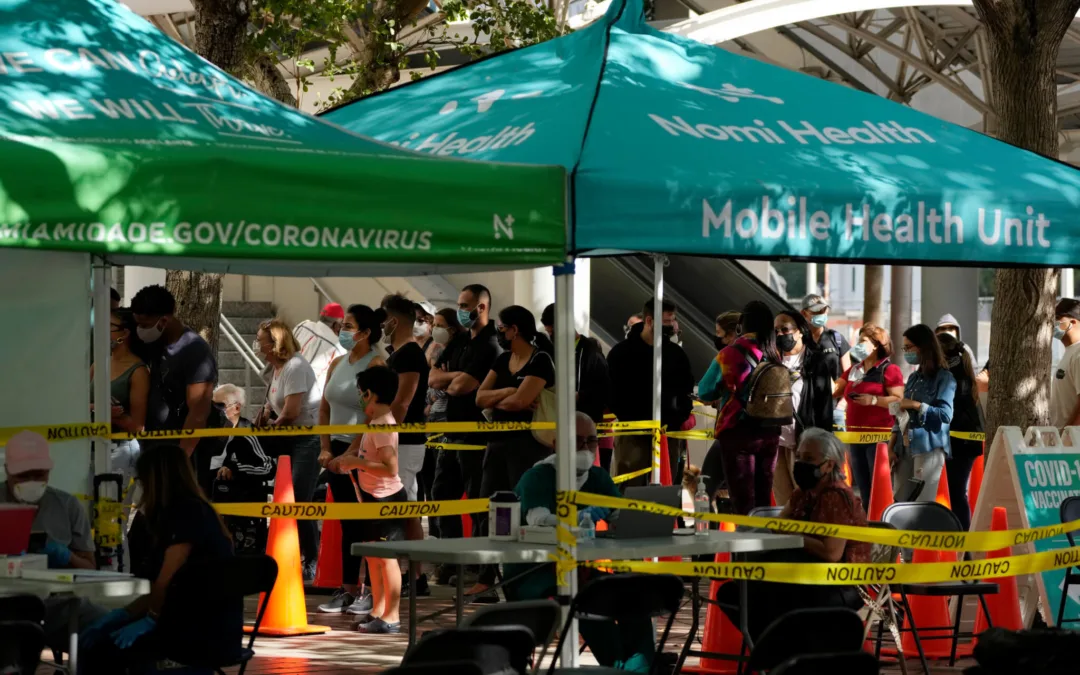
Image via Shutterstock
The Covid-19 pandemic is testing the readiness of Americans to put the collective above individual interests, but are we ready for instant homeschooling?
Under the current guidelines issued by the White House to slow down the spread of coronavirus, we have all been asked to “work and engage in schooling from home whenever possible,” and schools have been encouraged to close. The US Department of Education has recommended schools provide alternatives to continue the learning during the closures [recommendations in Spanish].
The response and approaches of schools have varied widely. Some public school districts are making efforts to replicate the daily routines and learning experiences for students with online tools. In these instances, daily schedules have been created and even rituals such as school announcements and the pledge of allegiance are being continued virtually. Others are making some learning resources available to families to use on their own. And yet others just sent kids home to extended spring breaks.
We know that extended breaks from academic work, as it happens over the summer, lead to declines in academic achievement, which have a more acute impact on low-income students. Therefore, it is reasonable to try to sustain some level learning during the quarantine. But let’s be clear: this whole overnight transition to remote learning and home-schooling is breaking an unspoken social contract with parents, that one where families make sure kids are ready to learn and teachers teach them all the stuff they will need to attain academic achievement.
This is especially true in the Latino community. According to a report on Latino parental involvement in education by Dr. Maria Estela Zarate published by The Tomas Rivera Policy Institute, Latino parents see their role in education as a complementary partnership with teachers, being involved in their kids lives more broadly, looking after their social and moral development; ensuring they do their homework and encouraging them to pursue ambitious academic goals, while expecting the teacher to provide the academic experiences they may not feel prepared to give themselves.
The extent to which prior to the crisis schools have pursued authentic partnerships with Latino families, such as the REAL Family Engagement approach advanced by the Flamboyan Foundation, will significantly impact the cultural relevance of the learning resources and the extent to which these families will be ready and able to get the most out of what is pushed out to them. But, if you’re one of those families that are getting limited access to learning resources from your school and are feeling overwhelmed with all this talk about home-schooling, here are three things you can do:
- Check your school district’s website – The vast majority of public-school districts have updated their website landing pages to easily find coronavirus updates and link to their learning resources. Whatever they are offering, it’s likely to be found there.
- Create a schedule – Kids like structure. Even if it’s only a couple of hours a day, identify when in the day they are expected to engage in some academic work. If you want to and feel ready to go all-in on home-schooling during a pandemic, The Together Group offers advice on schedules and balancing structure and choice with kids and the Emerson Collective has put together an excellent compendium of resources for remote learning that includes resources in Spanish for various subjects and grade levels.
- Trust you know best the children in your care – There were many times I felt overwhelmed with schooling as a parent, especially during the elementary and middle-school years. The content was different from how I had learned it, even if I could remember it. You know how much your people can study independently and use online resources, how much they can stay focused and if it’s possible to recreate some of the conditions of school at home, including access to technology and the Internet. Remember that stress and learning don’t mix well and if you’re overwhelmed by the home-schooling expectations so will be the children you’re caring for. Plan for what will work for them and your family.
The Covid-19 pandemic is testing the readiness of Americans to put the collective above individual interests. This has meant families stepping into the space their teachers usually hold in managing and supporting the learning of our children. You’re not going to become their teacher overnight, and that’s ok. Trust your instincts, keep calm, and reach out to your village for resources, advice and support.
Politics

Teamsters and UPS Reach Tentative Deal to Avoid Strike, 340,000 Workers to Get Raises
The tentative deal represents a huge win for full- and part-time UPS Teamster workers, who would get significant pay raises and better working...



One Republican Senator Is Blocking 265 Military Promotions, Leaving the Marines Without a Confirmed Leader
Sen. Tommy Tuberville's decision means these military officers are not getting the pay raises they’re owed, cannot move their families to wherever...
Local News



Teamsters and UPS Reach Tentative Deal to Avoid Strike, 340,000 Workers to Get Raises
The tentative deal represents a huge win for full- and part-time UPS Teamster workers, who would get significant pay raises and better working...



One Republican Senator Is Blocking 265 Military Promotions, Leaving the Marines Without a Confirmed Leader
Sen. Tommy Tuberville's decision means these military officers are not getting the pay raises they’re owed, cannot move their families to wherever...




